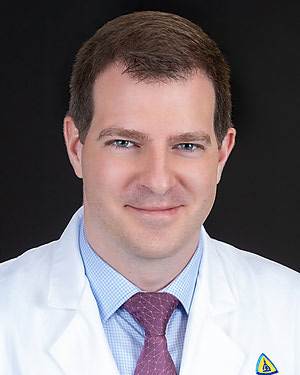Research Lab Results
-
IBD and Autoimmune Liver Diseases Laboratory
Investigators in the IBD and Autoimmune Liver Diseases Laboratory conduct basic and translational research in inflammatory bowel disease (IBD) and autoimmune liver diseases. One area of focus is discovering and developing biomarkers for diagnosing and prognosticating IBD and other autoimmune liver diseases (AILDs). We also are exploring the molecular pathogenesis of—and developing novel therapies for—IBD. In addition, we are working to understand the molecular reason why many IBD patients fail to respond to mainstay drug therapies—and to develop diagnostic assays that can predict non-responders before starting them on those therapies. These biomarker studies have led to our application for four U.S. and international patents.
-
Antony Rosen Lab
Research in the Antony Rosen Lab investigates the mechanisms shared by the autoimmune rheumatic diseases such as lupus, myositis, rheumatoid arthritis, scleroderma and SjogrenÕs syndrome. We focus on the fate of autoantigens in target cells during various circumstances, such as viral infection, relevant immune effector pathways and exposure to ultraviolet radiation. Our recent research has sought to define the traits of autoantibodies that enable them to induce cellular or molecular dysfunction. We also work to better understand the mechanisms that form the striking connections between autoimmunity and cancer.
-
Jun O. Liu Laboratory
The Jun O. Liu Laboratory tests small molecules to see if they react in our bodies to find potential drugs to treat disease. We employ high-throughput screening to identify modulators of various cellular processes and pathways that have been implicated in human diseases from cancer to autoimmune diseases. Once biologically active inhibitors are identified, they will serve both as probes of the biological processes of interest and as leads for the development of new drugs for treating human diseases. Among the biological processes of interest are cancer cell growth and apoptosis, angiogenesis, calcium-dependent signaling pathways, eukaryotic transcription and translation.
-
The Cihakova Lab
The Cihakova research laboratory is an immunology laboratory dedicated to the investigation of autoimmune diseases. Our most active research is focused on myocarditis and dilated cardiomyopathy. We expanded our interest in inflammatory heart diseases to include the study of immune mechanisms driving pericarditis and myocardial infarction. In addition, we are interested in the pathogenesis of a broad range of autoimmune diseases such as, Sjogren's syndrome, congenital complete heart block, and APECED (autoimmune polyendocrinopathy-candidiasis-ectodermal dystrophy). Through several collaborative projects we also investigate rheumatoid arthritis and the immune components of schizophrenia. -
Konig Lab
The Konig Lab focuses on chimeric T cell- and antibody-based strategies for the treatment of autoimmune rheumatic diseases and cancer. A primary goal of the translational research program is the development of antigen-specific and personalized immunotherapies for autoimmune diseases, with the intent to achieve sustained disease remission and functional cure. The lab further aims to establish precision T cell-targeting therapies for the treatment of various autoimmune diseases. Applying these tools to immuno-oncology, the lab utilizes cellular engineering strategies to augment the cytotoxic killing of solid cancers by the immune system.
-
Livia Casciola-Rosen Lab
Work in the Livia Casciola-Rosen Lab explores the shared mechanisms present in autoimmune rheumatic diseases, specifically scleroderma, Sjogren's syndrome and myositis. We use disease-specific autoantibodies to identify the factors that cause the autoimmune response in such diseases. Our current research involves identifying the antigen targets of autoimmune diseases, investigating the autoantigens targeted in cancers associated with rheumatic diseases and finding unique clinical biomarkers, such as the anti-HMGCR antibody specificity.
-
Felipe Andrade Laboratory
Research in the laboratory of Felipe Andrade, M.D., Ph.D., focuses on the mechanisms of systemic autoimmune diseases, particularly as they relate to the role of cytotoxic granule proteases in autoimmunity and viral clearance, mechanisms of autoantigen citrullination and pathways that control immune effector functions in autoimmune diseases. We currently focus on two principal areas: (1) defining the mechanisms that generate citrullinated autoantigens in vivo in rheumatoid arthritis and (2) understanding the pathways that control the activity of the peptidylarginine deiminase (PAD) enzymes in human neutrophils.
-
Thomas Grader-Beck Lab
Research in the Thomas Grader-Beck Lab aims to understand the pathogenesis of systemic autoimmune diseases—particularly systemic lupus erythematosus (SLE) and Sjögren’s syndrome—by taking a translational approach. Autoantibodies (antibodies that target self-molecules) are believed to contribute significantly to the disease process. We are studying mechanisms that may make self-structures immunogenic. We theorize that certain post-translational antigen modifications, which can occur in infections or malignant transformation, result in the expression of neoepitopes that spread autoimmunity in the proper setting. The team has combined studies that employ a number of mouse strains, certain gene-deficient mice and human biological specimens.
-
Schneck Lab
Effective immune responses are critical for control of a variety of infectious disease including bacterial, viral and protozoan infections as well as in protection from development of tumors. Central to the development of an effective immune response is the T lymphocyte which, as part of the adaptive immune system, is central in achieving sterilization and long lasting immunity. While the normal immune responses is tightly regulated there are also notable defects leading to pathologic diseases. Inactivity of tumor antigen-specific T cells, either by suppression or passive ignorance allows tumors to grow and eventually actively suppress the immune response. Conversely, hyperactivation of antigen-specific T cells to self antigens is the underlying basis for many autoimmune diseases including: multiple sclerosis; arthritis; and diabetes. Secondary to their central role in a wide variety of physiologic and pathophysiologic responses my lab takes a broad-based approach to studying T cell responses. -
Philip Seo Lab
Research interests in the Philip Seo Lab include the assessment and treatment of ANCA-associated vasculitides, particularly Churg-Strauss syndrome, granulomatosis with polyangiitis and microscopic polyangiitis.


